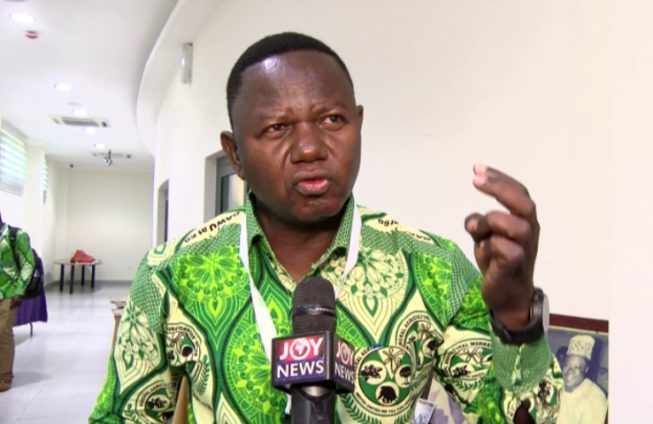
Audio By Carbonatix
The General Agricultural Workers' Union (GAWU) wants government to implement the Obaatanpa policy surgically, to the target group and on time in order to achieve its full objectives.
One of the cardinal focus of the policy is to attract educated youth into agriculture. GAWU says though the policy is a brilliant one, the agriculture sector can only benefit if a market is created for food production, whilst challenges minimized drastically.
Edward Kareweh, the General Secretary holds that there should be some arrangements to move the produce from the farm to the consumer.
“We must build strong linkages between the production and the market which should not be the concern of the youth, the young men and women who would be in agriculture that should not be their concern. Their concern should be to produce.
When you produce there is an arrangement that will allow your produce to be taken off your farm without you now going to look for a marketer to come and take it from you and that will be a good inducement,” he said.
According to him, this is to assure farmers of their money.
“This can guarantee that they will not lose their capital at the end of production and their effort and the denial and the discomfort that they will go through will not come to waste at the end of production when they fail to get market.” he added.
About Obaatanpa Programme
The Ghana CARES (Obaatan pa) programme is an unprecedented, bold and audacious GHȻ100 billion post COVID programme to stabilize, revitalize and transform Ghana’s economy to create jobs and prosperity for Ghanaians over a three-year period.
It is sequenced in two phases: a Stabilization Phase that is running from July to the end of the year (2020); and a medium-term Revitalization Phase from 2021-2023.
The first phase of the programme builds on the actions already taken by Government under the Coronavirus Alleviation Programme, including stabilization of the economy, ensuring food security, support businesses and workers, strengthening the health system and passage of legislations to facilitate quick economic recovery.
The second phase aims at revitalizing and transforming the economy from 2021-2023 will focus on supporting commercial farming and attracting educated youth into agriculture, building Ghana’s light manufacturing sector, developing engineering/machine tools and ICT/digital economy, developing Ghana’s housing and construction industry, reviewing and optimizing the implementation of Government flagships and key programmes among others.
Latest Stories
-
NDC rules out third-term agenda for Mahama
2 minutes -
Ashanti Region: Military officer arrested over alleged illegal sale of firearms
4 minutes -
Tactical overview of Afcon 2025 – trends to expect
13 minutes -
Vice President commissions Softcare sanitary pads production line, reaffirms gov’t partnership
15 minutes -
Today’s front pages: Wednesday, December 17, 2025
28 minutes -
‘No cracks, no confusion’ – Fifi Kwetey shrugs off NDC rift claims over OSP bill
1 hour -
We returned winners, not losers – Bryan Acheampong rewrites NPP’s electoral history
2 hours -
‘Barely in office, already talking power?’ – Fifi Kwetey slams early succession talk in NDC
2 hours -
‘Performance, not sympathy’ – Bryan Acheampong says NPP must break tradition
2 hours -
After all the branding, we lost 7 Regions – Bryan Acheampong says Bawumia can’t be repackaged
3 hours -
‘The product failed in the market’ – Bryan Acheampong tears into Bawumia’s 2024 numbers
3 hours -
‘I’m way ahead’ – Bryan Acheampong dismisses polls, predicts NPP primary victory
3 hours -
‘I will support whoever wins’ – Bryan Acheampong pledges loyalty to NPP flagbearer
4 hours -
‘We’ll come back stronger’ – Bryan Acheampong vows NPP revival after 2024 defeat
4 hours -
Ivory Coast miners start paying higher royalties after failed resistance, sources say
4 hours

